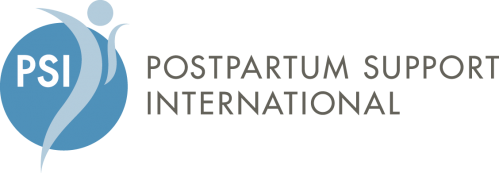
Postpartum Counseling
Have You Been Feeling Overwhelmed and Disconnected From Yourself?
Perhaps you’re feeling “stuck” in a traumatic pregnancy, birth, or postpartum experience that didn’t go as you hoped. Or you cry more days than not, unsure of how you can possibly feel better.
Maybe constant anxiety about your baby’s well-being is affecting every decision you make, no matter how small.
If you’re like most new parents, right now you’re struggling to care for yourself or questioning whether you’re a “good enough” parent. Maybe you're finding it hard to maintain a loving relationship with your partner because they don’t fully understand what you’re going through. Or maybe it’s difficult to ask for help because you feel like you’re the only one who can do a care task the right way.
It’s hard right now. Having the opportunity to speak to a trained professional who empathizes and makes you feel seen and heard—someone who has been there and truly gets it—can provide the relief and healing you need.
The Beauty and Struggles of the Postpartum Season
Pregnancy, childbirth, and the postpartum season can be beautiful experiences, filled with moments of joy and wonder. However, they’re also a period of considerable change and disruption. There are distinct changes to your identity, body and brain, and your relationships. And change can be destabilizing without support and reassurance.
Though everyone’s postpartum experience looks different, if you’re having a difficult time adjusting, you’re not alone.
Maybe you’re experiencing the following:
Crying more days than not
Irritability and rage, particularly towards your partner
Anxiety around your baby’s health, routines, and care
Low mood and hopelessness
Isolation and feeling trapped
You may find yourself comparing your experience to other parents and focusing on ways you feel like you're falling short. It could also be that the people you were counting on to support you during this time didn’t show up the way you thought they would. Or, they may have disrupted your postpartum environment in ways that feel like a violation. On top of that, you’re struggling with a lack of sleep and finding it hard to take care of your basic needs, like showering and eating.
Postpartum counseling with Well Parent Therapy can help you prioritize your physical and mental well-being without compromising your responsibilities or your baby’s care.
Perinatal Mental Health Conditions Are More Common Than You May Think
Struggling with the adjustment to parenthood is far more common than many realize. Yet there’s still a taboo around not enjoying parenthood, feeling like you're not a "good enough" mother, or believing there’s something wrong with you if you have to ask for help. This fear of judgment from others can make it even harder to get support.
In fact, perinatal mental health disorders are the most common complication of childbirth, with 1 in 5 perinatal individuals experiencing depression or anxiety, and 1 in 10 dads and partners being affected as well.*
You’re Not Failing at Being a Parent, Society Is Failing You
We live in a country that lacks systemic support, such as paid leave or affordable postpartum care, leaving you to navigate recovery and parenthood without a "village." Tasks like cleaning, meal preparation, and childcare often require hiring help, which isn’t accessible to everyone.
This lack of support can lead to feelings of isolation, overwhelm, and frustration. The absence of family or friends to care for you after birth or even to listen to your experiences often intensifies the mental and emotional toll.
Cultural and societal pressures also play a significant role in postpartum struggles. Expectations to "bounce back" physically and emotionally, combined with social media's portrayal of idealized parenting, create unrealistic standards that can damage your confidence.
First-time parents are especially vulnerable, facing information overload while still developing their parenting abilities. Additionally, the medical system and social dynamics often prioritize the baby’s needs over the parent’s, with fewer check-ins and support for the birthing person’s recovery and more attention paid to the baby.
It can be so difficult to cope with these challenges all on your own. Postpartum therapy can help you process these challenges by giving you the tools to reclaim a sense of confidence and peace of mind during this period.
You Can Find Peace in Parenthood Through Perinatal Therapy
Postpartum therapy is a space where you can feel comfortable sharing your experiences, thoughts, and feelings without fear of being judged. I, too, have been down this road, and I want you to know that I understand the struggles you may be facing—and I’m here to help.
Through therapy, you can identify the root causes of the distress you’re experiencing and work toward developing a healthier relationship with yourself. Together, we can process any unresolved trauma from your pregnancy, birth, or postpartum experience so you can live in the present with your baby without being haunted by the past. Additionally, you’ll learn new coping skills to help you feel better equipped to navigate future parenting challenges with greater confidence and resilience.
My Approach to Postpartum Therapy
At Well Parent Therapy, I use a variety of evidence-based techniques and modalities to support your healing from perinatal struggles. My approach is rooted in relational and psychodynamic principles, meaning I will be a human with you in the therapy room, attuned to our relationship dynamic, and focused on the root causes of your emotional distress.
We’ll explore your experiences in a way that normalizes your feelings, offers empathy, and helps you feel truly seen and heard by someone who understands. My goal is to help you release shame and self-blame, creating a compassionate and empowering space for growth.
What to Expect From Our Work Together
I incorporate practical, accessible coping skills tailored to the realities of the postpartum period. Depending on your needs and symptoms, I draw on evidence-based approaches during postpartum therapy sessions such as:
Narrative Therapy
Cognitive Behavioral Therapy (CBT)
Acceptance and Commitment Therapy (ACT)
Interpersonal Therapy (IPT)
Eye Movement Desensitization and Reprocessing Therapy (EMDR)
Each session is carefully tailored to meet you where you are, ensuring that the support you get is as unique and dynamic as your parenting journey.
As a postpartum therapist trained in the particular psychological needs of new parents, I’m here to help you heal your heart and mind while navigating the unique challenges of this season. We’ll work together to reestablish a supportive relationship with your partner, develop confidence in your identity as a parent, and establish healthy boundaries that protect your well-being, your baby, and your peace. My goal is to provide a safe and compassionate space where it feels possible to heal, grow, and thrive in your postpartum journey.
Maybe You’re Considering Postpartum Therapy in Los Angeles, but Still Have a Few Concerns…
-
Understandably, you feel stretched thin during this time! A couple of things that could help with the scheduling: One is that babies are always welcome during our sessions; you’re free to feed your baby or do other care tasks as needed. Two is that we can do online therapy sessions; some parents schedule these during their babies’ naps or when a partner can take over for 50 minutes. Therapy is an investment in your well-being and your family’s future. You are worth the support.
-
Unfortunately, there is still a stigma around mental health treatment, especially among certain communities and cultures. But seeking therapy doesn’t mean you’re a bad parent—quite the opposite! It means you’re prioritizing your wellness and showing up for yourself and your family in the best way possible. While you can’t control what others think, you can control the steps you take to feel better, and that is a powerful act.
-
That’s a personal decision we can explore together. Medication is not mandatory for treatment, and I work with clients who choose to take it and those who don’t. My role is to support you, provide insights into your symptoms, and help you make an informed decision that feels right for you. Therapy itself can be a transformative step toward healing, whether or not medication is part of your journey.
You Are So Much More Than Your Postpartum Struggles
Whether you're navigating postpartum anxiety, depression, or processing trauma related to your pregnancy, birth, or parenthood, Well Parent Therapy in Los Angeles is here to support you. You don’t have to just survive—you can thrive. Please contact me to learn more about how my compassionate and personalized approach to perinatal counseling can help you heal, grow, and find your balance again.














